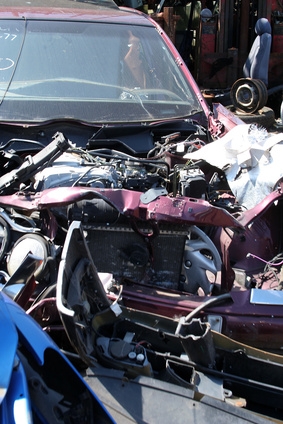
A car accident can forever alter your vehicle's operation, performance and overall value, even if repaired. Your car's resale value becomes automatically lowered and perhaps completely unsellable to many buyers, even if running properly. Thus, you may be able to collect damages from your auto insurance company or the other driver. Collecting on a diminished car value takes time and effort with no guarantee of success, but is worthwhile for your best interests.
Contact your insurance company, if you live in a no-fault state. If not, and the other driver was found at fault, then contact that party's insurance company.
Read your insurance policy, if your own company is responsible. Many insurance policies include diminished value exclusions, thus exempting the company liability.
Have automotive professionals examine your vehicle. Ensure they will provide a written report stipulating diminished value, either due to a mechanical deficiency, evidence of repainting or any other differences that exist since the accident. Also ensure the professionals will estimate a realistic monetary value for these differences.
Write a demand letter to the insurance company explaining the diminished value and provide copies of your mechanic's estimates. If the insurance company already accepted liability for vehicle repairs prior to the accident, then precedent exists that they are also responsible for diminished value. After all, that loss stems from the accident, and the company's job is to make you financially whole from the incident in question.
Contact the party who damaged your car, if the insurance company is not responding in a satisfactory way. The other driver also has a legal responsibility in the matter, since he is ultimately responsible for the existence of diminished value. He may agree to pay the diminished value to avoid legal proceedings.
Hire an attorney, if you have the means. A good lawyer can decide who is ultimately legally responsible for the diminished value, depending on the laws of your state. He can then move forward with threats of litigation and take the case to court, if necessary.